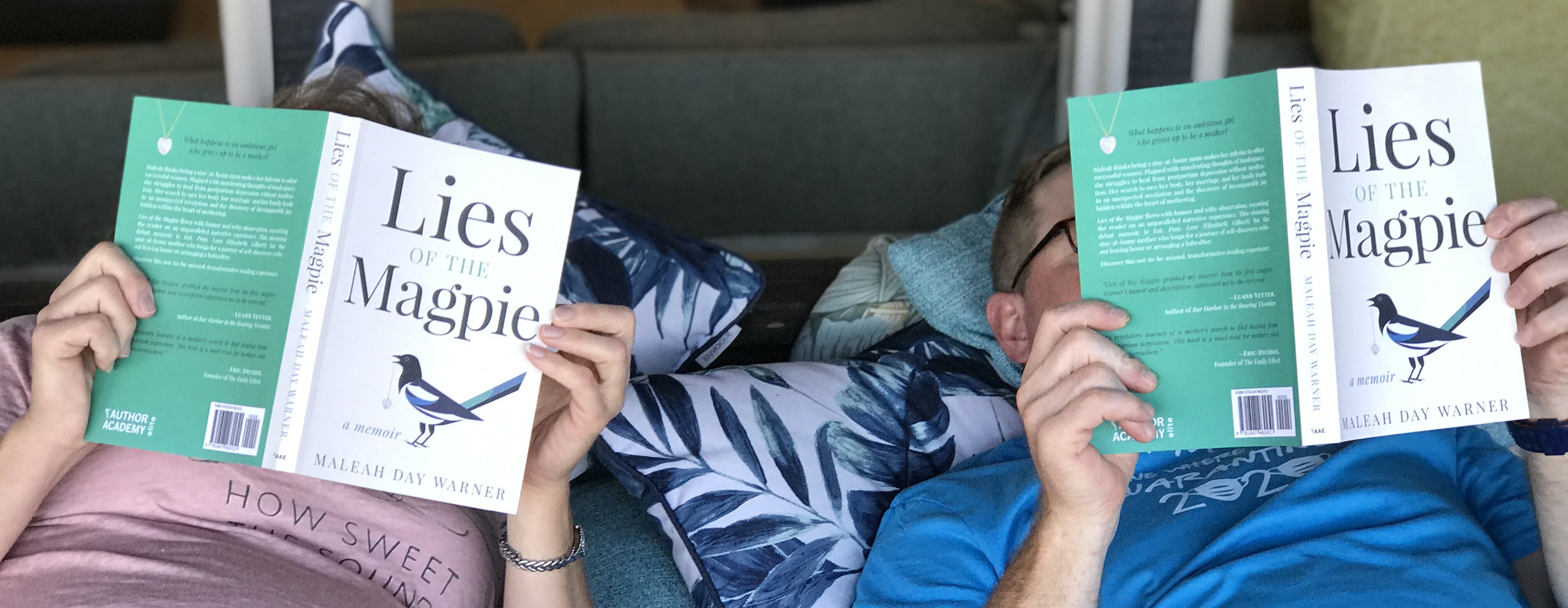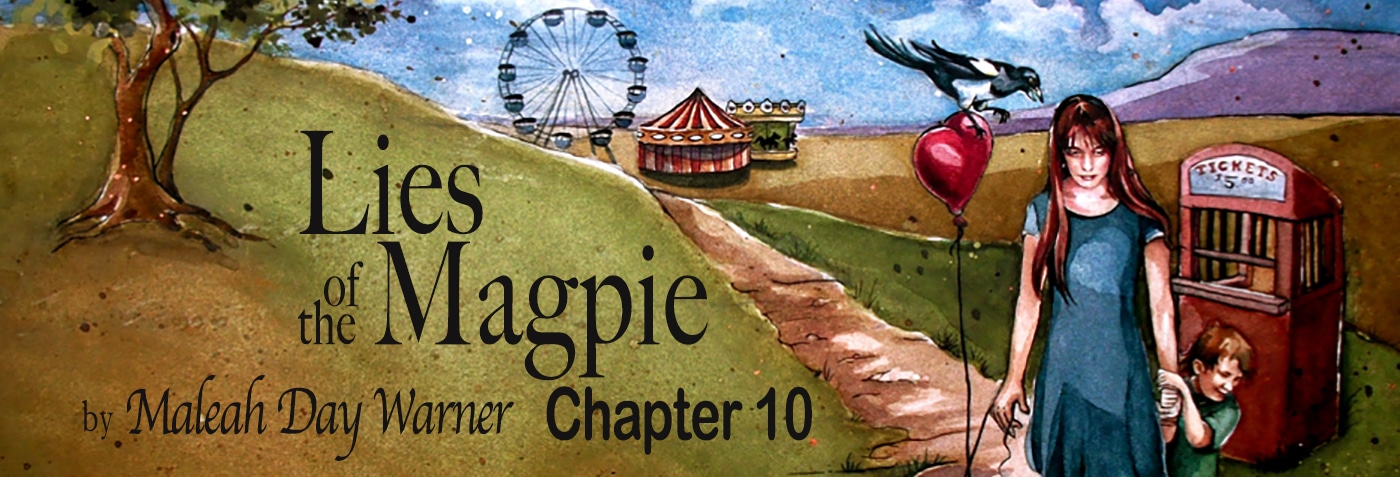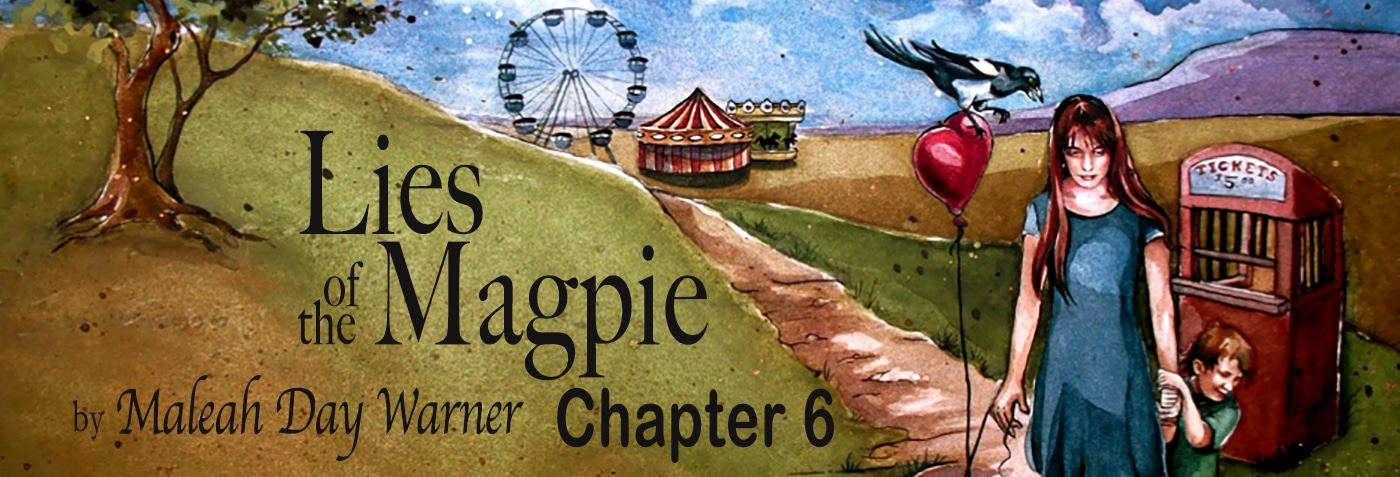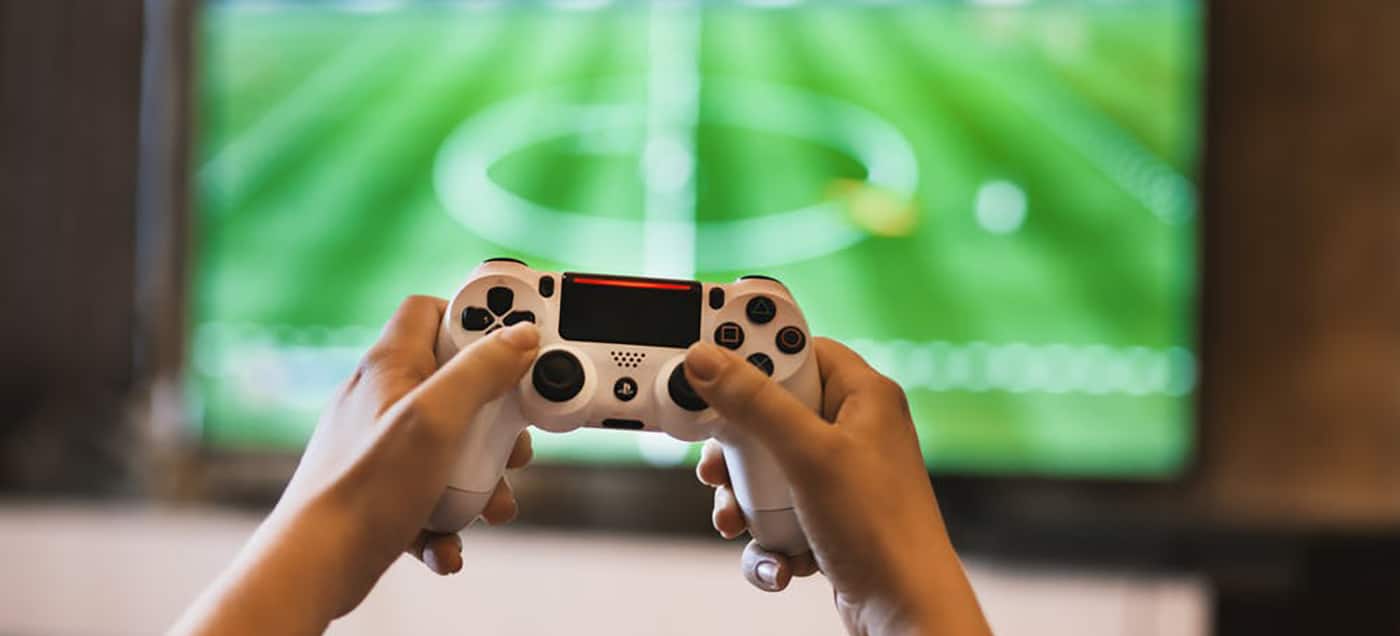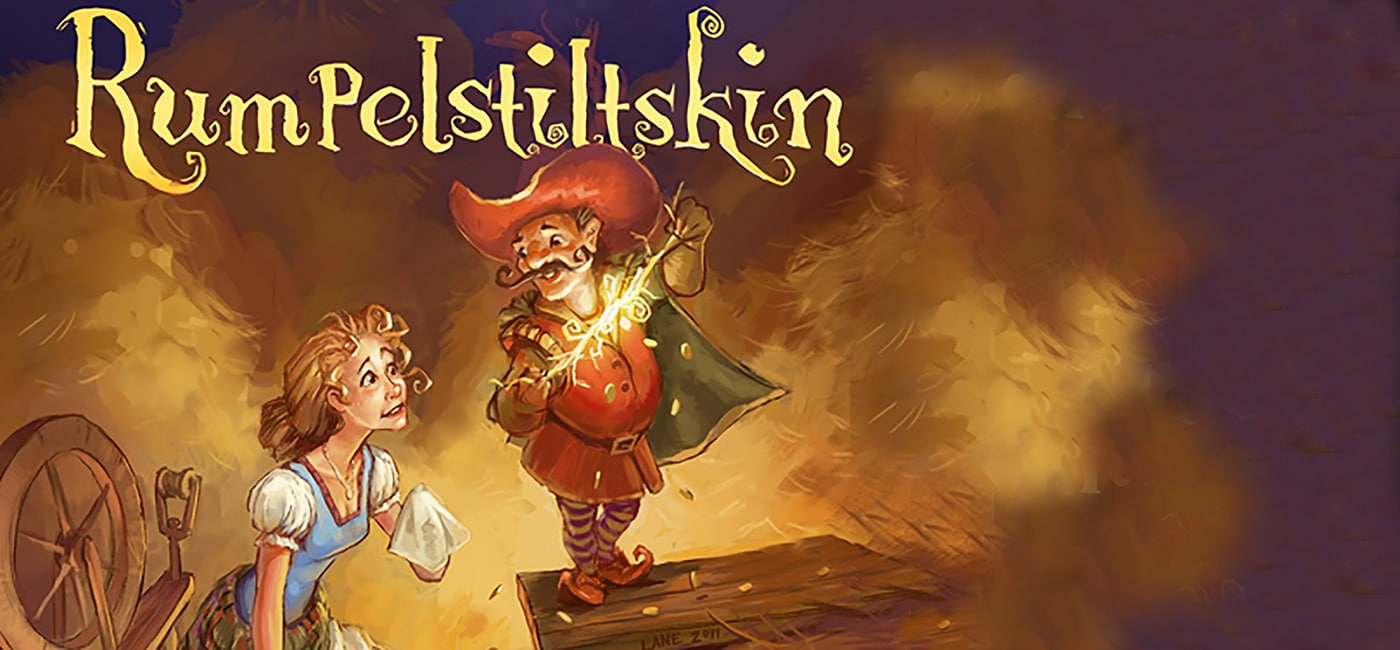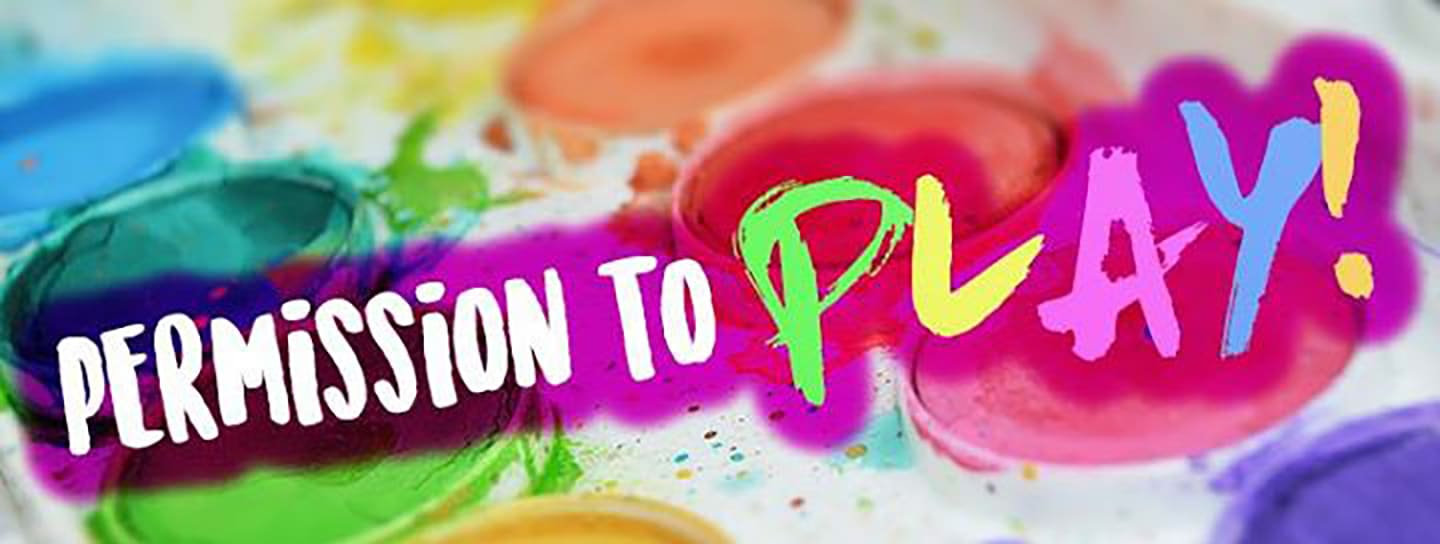Podcast: Play in new window | Download
Subscribe: Apple Podcasts | Google Podcasts | Spotify | Email | RSS | More
Podcast: Play in new window | Download
Subscribe: Apple Podcasts | Google Podcasts | Spotify | Email | RSS | More
Ep. 80 Listen to these FREE sample chapters from the best-selling memoir Lies of the Magpie by Maleah Day Warner. In these chapters, Maleah questions whether she is “sick enough” to merit seeing a doctor. The challenge is that she isn’t bleeding, bruised, or having any specific pain. She knows she doesn’t feel “right,” but struggles to put what is wrong into words. She is terrified the doctor will say it’s “depression.” For Maleah, depression isn’t a legitimate illness, but rather a judgment of a person’s weak character. Maleah thinks she would rather get a cancer diagnosis than be told she has postpartum depression. In the end, her diagnosis isn’t at all what she expected, and will create more complications and confusion as the story progresses.
Podcast: Play in new window | Download
Subscribe: Apple Podcasts | Google Podcasts | Spotify | Email | RSS | More
Three is the hardest number of children.
We adored Tanner, but adding the third child threw us completely off balance. For several months after bringing Tanner home from the hospital, we struggled to find our groove. “I’ve got Danny,” Aaron would say taking Danny by the hand when we’d arrive at a baseball game, a neighborhood swim party, or a church barbecue. I’d hoist Tanner’s car seat with two hands and balance the over-flowing diaper bag on my shoulder. Aaron would look at me, I would look at Aaron, and we’d both look at Kate who was poised ready to sprint away the second one of us unbuckled her safety belt. “I’ve got Danny and Kate,” Aaron would concede.
With two parents and three kids, there always seemed to be one child left unattended. It used to be that I would cut Kate’s meat and Aaron would help Danny. Now, during dinner, I sat on the couch nursing Tanner. “Kate, why aren’t you eating?” Aaron chastised. Kate looked up shyly, “Nobody cut my meat.”
The worst was the day we drove out of the neighborhood. I knew something felt off…“Go back! I left Tanner.” I unlocked the front door and came out carrying Tanner’s car seat. He’d been buckled in and was waiting on the living room floor to be carried to the car.
We carried on like this, completely off-kilter until a miraculous thing happened in July. Annice and Calvin went to Hawaii and left their three kids with us. We became parents to six kids under the age of nine. Annice showed up one week later with a gorgeous tan. I hadn’t brushed my own teeth in seven days. Going from six kids back to three seemed to reboot our system, and Aaron and I found a good rhythm balancing our own Danny, Kate, and Tanner.
Tanner was an easy baby an once again I began to wonder if being a mother was enough. Should I be doing more?
In the fall, Danny started preschool, Aaron went back to night school to become a Certified Financial Planner, and I started a part-time job selling advertising and writing articles for a local magazine. I thought it would be the perfect outlet for me—a way to keep my intellect sharpened and get out of the house a few hours a day. After two weeks, it was obvious the job situation wasn’t working. By the time I buckled the three kids into my car, dropped them off to three different locations, and drove twenty minutes to my sales area, I had forty minutes to contact business clients before it was time to pick up Danny from preschool.
“You’re always the last mom here,” Danny would say, the sweat dripping down his face from waiting outside for me.
One night in bed I leaned up on one elbow and told Aaron, “I need to quit my job.” I hoped he would say, “I agree. I don’t know how you keep up with three kids, working in the morning and teaching piano lessons in the afternoon.”
Instead, he said, “Why?”
“It’s too much,” I rambled. “I’m always late to pick up Danny, Tanner doesn’t get a good morning nap, and the money I make barely covers Kate’s babysitter. The kids are cranky. When I started working for the magazine, Tanner stopped sleeping through the night. I don’t think he’s getting enough milk. I’m tired. I’m falling asleep during piano lessons.”
“It’s only a few hours a week,” Aaron said.
“By the time I get everyone dressed, out the door, buckled into the car, dropped off and picked up again, it takes the whole morning.”
“You’re the one who wanted something productive to do,” Aaron offered.
I called my boss and told him my decision. “I wondered how you kept it going so long,” he said.
After that, I decided to slow down. Three kids took a lot of time. I needed to make a conscious effort not to over-schedule myself.
In December, Aaron asked if we could have his Client Christmas Party at our house.
“No,” I said.
“Why?” he asked.
“Because our house has only second-hand furniture and I have no idea what to cook for retired millionaires who have dined in the best restaurants around the world.”
“It wouldn’t have to be fancy,” Aaron argued. I held my ground.
The next day, while Aaron was at work, I saw Laiah sitting on my window sill. I hadn’t heard from her in a few months. “Aaron is disappointed with you. Your house should be more nicely decorated. That is your job as a homemaker. And you should know how to cater fancy work dinners. Your husband should be able to bring his clients home any time.”
A week after I declined hosting the client party, Aaron said, “Let’s drive to Utah for Christmas this year.”
“No,” I said again. “Why?”
“Because it’s been four years since we stayed home for Christmas. I want to have our own family Christmas at our own house where we can open presents and play with toys all day and never change out of our pajamas. I want to relax and enjoy Tanner’s first Christmas.”
“You can relax in Utah,” Aaron answered. I stood my ground.
Listen to the full chapter here: Chapter 10
Listen to past chapters here: https://maleahwarner.com/podcasts/
Podcast: Play in new window | Download
Subscribe: Apple Podcasts | Google Podcasts | Spotify | Email | RSS | More
We brought Kate home and began adjusting to life as a family of four. Danny thought Kate was a toy that squeaked, moved, and cried if you poked it in the eyes. We set up a playpen in the family room—a protective perimeter to separate Danny from Kate. Aaron’s trip to St. Louis had proven profitable, he had passed his tests and was an officially licensed stock broker. His license came with a marvelous perk—a legitimate office of his own, a place to get off his feet during the day and here’s the best part, it came complete with air conditioning. With getting an office, Aaron had permission from Goodwin to hire his own personal office assistant. “I am going to spend eight hours a day with this person, and it will likely be a woman, so I want you to help me interview the candidates.” Go back to 4 and clarify when I visit Karly that it’s in a temporary office
On the first day in his new office, Aaron came downstairs showered, freshly shaven, and dressed in a new shirt and tie. “You look like a man with important places to go and people to see.” I sat at our card table wearing wrinkled pajamas, my hair scooped up in a messy bun on top of my head, spooning oatmeal into Danny’s mouth. Kate was sleeping in the playpen next to the table, and Danny kept pointing at her with questioning eyes. “It’s Kate,” I’d say.
Aaron kissed the top of my messy bun. “You’re down here early.” He sounded so chipper. I wanted to go back to bed.
“Kate woke up at five to eat. Danny was wide awake at six. He’s been down here playing. I tried to keep him quiet.”
“I didn’t hear a thing,” Aaron poured some juice. “Did Kate wake up in the night?”
“At two thirty and then at five. Congratulations on your new office. Your first day with a real desk and air conditioning. This is a big day.”
“Yes it is. Have fun here. What are you guys going to do today?”
I didn’t know how to answer. What did he think I should do today? What did he think I could do today? In between hooking a six-pound human to my chest every three hours and stopping eleven-month-old Danny from running over his new sister with his fire truck, what did he expect from me?
Did he expect that I would read Barney books to Danny and tell him the name of every plastic alphabet letter he brought to me. Because that’s what I did.
Did he expect that I would wince and cry each time Kate started to suck on my cracked, bleeding nipples? Because that’s what I did.
Did he expect that I would lay Kate down on our bed and fall sound asleep next to her?
Because that’s what I did.
Laiah and I talked most often when I took Kate downstairs for her 2:30 am feedings. Laiah never seemed to need sleep like I did. I sat in the rocking recliner staring foggy-eyed at the bucket of Danny’s toys in the corner. In the dim, mysterious glow of the lamp light, I expected at any moment for the toys to come to life and perform a midnight matinee in the middle of the family room floor.
“I’m not winning any prizes in the mothering arena, am I?” I whispered to Laiah while I leaned my head against the recliner waiting for Kate to finish. “There’s no report card. How do I know if I’m doing this right? What tells me how I measure compared to other women?”
Laiah knew the answer. “The mothering judges aren’t as direct. You have to watch for subtle signs from people around you. They may not come straight out and tell you what they think, but watch their actions and listen for the underlying meaning of what they say, especially Aaron, and you’ll have a good idea of how you rank in your performance as a mother.”
“Nancy, a lady at church, went two weeks overdue. She said I was lucky that I only had eight month pregnancies.”
Laiah nodded, “People will rightly think that you weaseled your way out of those hardest, last weeks of pregnancy.”
“Does Aaron think that?” I asked worried.
“Aaron never fully believed you about the bed rest. He thought you were milking the situation. The bed rest and the false labor embarrassed him. It made him realize that he married a weak woman.”
“How do you know?” I asked.
“You just need to open your eyes and pay attention to Aaron’s cues. What was his reaction after you gave birth to Kate? Did he say you were brave? Did he say you did a good job?”
Podcast: Play in new window | Download
Subscribe: Apple Podcasts | Google Podcasts | Spotify | Email | RSS | More
Has anybody else out there, like me, been fretting over the question: How am I going to control my kids’ screen time this summer? I know you are because it’s what we’re all talking about in our mom circles: How can I get little Johnnie to stop playing Minecraft? My Jaden is addicted to YouTube. How many hours of TV is too much for a 4 year old? I hear you.
Summer is barely underway and I’m already seeing instagram photos of zombie children glued to ipads with the caption “Help!” Collectively, as mothers, we are posting questions on FB, “How many hours of Minecraft is too much for a 5 year old?” We are scrolling Pinterest for solutions searching everything from printable chore charts, to cheap summer adventures, and (my personal nemesis) ideas for homemade craft projects to keep kids busy and engaged during the LONG summer days. We have lengthy discussions with our sisters and moms friends about managing screen time. And where are we having these conversations? On Marco Polo.
We are in dire straits. We are in desperate need of advice, guidance, directions. Where do we turn for help? In our moments of crisis, when we need to know how to keep our children off their screens, we, their mothers, turn to our screens. In fact, at this very moment I type these words onto one screen while my children downstairs interact with at least two different screens, and my husband in our bedroom looks into yet another . . .you got it . . . screen.
I’ve been stewing over this media issue for a month now as summertime approaches. What bothers me about this question—How do I control my kids’ screen time?—is the nagging tug of obligation I feel in my gut that if my family is going to have a successful screen-free summer, it’s going to be up to ME. I’m the one that will have to plan the pinterest-worthy summer outings collecting a representation of local flora and insect life to paste on our poster board panorama. It will be ME spending hours on the computer designing personalized chore charts and graphs of practice and reading time and devising a captivating behavior-based award system with coinciding coinage.
Years ago, in an attempt to control the unscheduled hours of summertime, I devised a form of currency called Warner Bucks. This was money I designed and printed myself (the closest I’ve ever come to running a counterfeit cash operation) and featured faces of family members. The kiddos—all under age 7—could earn Warner Bucks for doing chores and demonstrating good behavior. Then they paid a Warner Buck for every 30 minutes of TV time. Brilliant, huh? It was a disaster. Essentially, I had created several full-time jobs for myself. I was running my own little company and I was in charge of payroll, human resources, management, job descriptions, job trainings, employee performance, and employee evaluations. I was spending all my time giving and collecting crinkled cash, all with the goal to limit screen time. Yet the television was blaring as loudly and for as many hours as ever before. It seemed that every conversation, every action, every motive in our house for that summer centered around buying more screen time.
In her book Parenting in the Age of Attention Snatchers,. Author and clinical psychologist Lucy Jo Palladino says “Forbidden fruit is the tastiest. Completely banning screen time may simply double the desire of your kids to get online.”
Marketers use limitation and limited quantity as methods to increase demand. If screen time becomes a dangling carrot, then I actually WANT MORE SCREEN TIME! But AHA! We’re onto their schemes and trickery and will not fall prey to their tactics. So our objective as parents isn’t to limit screen time, but to help our children discover what they want to do more than they want to stare at a screen.
We most often default to doing something on a screen because we don’t know what else we would rather do instead. In the moment, making a decision or making plans requires too much effort. It’s easier to click on Candy Crush. So the best method to beat over-indulging in screens is to have plans made in advance.
Something we’ve done for a couple of summers that has worked (much better than Warner Bucks) has been to create a summer bucket list. We have a family meeting and everyone gets to say things they want to do for the summer. It’s fun and energizing. Suddenly all kinds of possibilities open. The local aquarium that is so awesome but we haven’t visited yet. The special hike to that awesome waterfall. Trying to relocate that secret swimming hole. Picnics at favorite parks. Puzzles. Board games. Outdoor movie nights. Family video game tournaments.
We don’t exclude screens from our summer bucket list. We plan screen time intentionally.
This year we are creating family and personal summer bucket lists. Our meeting is next Sunday and we prepped our kids a few weeks ago to start brainstorming. Since my kids are older (ranging from age 10 to 19), their personal lists will include 1) Something to practice 2) something new to learn 3) a daily physical activity and 4) a list of books to read. My advice for families with young children is to go easy on goals. With younger children, set yourself up for success by scaling back what you think is possible. It’s better to achieve one goal successfully than fail to achieve five goals. Success breeds success.
On Sunday we will pull out colored markers to decorate our summer lists. Basically, we are creating a vision for our summer. Vision and energy are more powerful than limitation. Instead of focussing on what we can’t do or what we shouldn’t spend too much time doing, we are going to empower ourselves, as a family, with vision, energy, and fun.
You can learn more about the energizing power of desire by listening to Episode 2 “What Do I Want?” It’s one of my most downloaded episodes, I think because so many of us don’t know what we really want or we don’t believe we can have it, so we don’t even try. The best method to get away from screens this summer is to KNOW, ahead of time, what we want more. This helps us to not sacrifice what we want long term for what is easiest right now.
Today we’ve explored the broad principles of why NOT to limit screen time: because limit increases want. And we’ve learned that a more powerful way to embrace summer adventure is to brainstorm, as a family, activities you want to do more than sitting in front of screens.
Next week we’ll dive into the nitty gritty of how to set up this empowered summer. We’ll talk everything from the words you choose in talking about screens to the power of boundaries. Any why boundaries are NOT the same as limits. These tools help kids and parents feel their screen use is abundant and satisfying rather than feeling left wanting more.
Podcast: Play in new window | Download
Subscribe: Apple Podcasts | Google Podcasts | Spotify | Email | RSS | More
Episode 17 presents Part 2 of my conversation with Maternal Mental Health Specialist Amy-Rose White, LCSW. We discuss the importance of modeling emotional healthcare for our children as well as what dads, partners, and families can do to watch out for signs of postpartum health illnesses and steps for preventative care. Exciting changes are happening for Maternal Mental Healthcare in Utah, plus Amy-Rose tells us what changes she still wants to see.
Did you miss Part 1 of this interview? Click Here for Part 1
A: One way to help end the stigma surrounding mental health is to model healthy emotional needs for our children. We can say to daughters and sons, “I’m not well and I’m going to go get help and I’m going to figure this out.” Often it’s not easy to find the right help, the right team. Show your family that you are willing to keep trying, to keep opening doors and walking through until you feel well again.
Allow your children to see that you need rest and to see that self-care is natural and part of wellness. Know your self-care routine and what recharges your battery. I expect my sons to contribute as community members now so that when they grow up and have partners, and possibly decide to have children, they will take the responsibility on as well. They will help carry the burden of raising children. Especially this generation of women, the “Millennials,” fight the “Have everything and have it all now” pressure. Up and coming mothers are such high achievers and have a burden of options. The pressure is high, it really is. So it is essential to model caring for self and caring for emotional and physical health.
In the film about Postpartum Depression, entitled Dark Side of the Full Moon, one husband says, “Watch your wife. Keep your eyes on your partner.” I agree.
If partners can be educated about the warning and also help mom sleep, eat, drink water, and take breaks, these are preventative measures that can go a long way to prevent emotional health changes. Notice what your partner is going through and make the call with her or for her. Going with her to appointments says, “I love you enough that I want to help you get help and we’re going to figure this out together. There is nothing wrong with you.”
Ten percent of dads will develop postnatal depression, so a man also needs to watch out for himself, especially if mom can’t. Warning signs of postnatal illness in men are typically anger or withdrawal. The best remedy is to reach out to a counselor, which is not a guy thing to do. The language centers for men are different than for women. Men tend to need time alone to decompress. Another warning for dads is to be aware that if his partner has an illness, then his risk increases. Often I see that once a women is in remission and recovered, then her male partner gets the symptoms.
It’s a very sad thing I see in my practice, but sometimes relationships do end because of untreated Postpartum Depression. Divorce can occur during the postpartum period because the husband thinks, “This isn’t the person I fell in love with and I don’t see this ever getting better.” Or sometimes the woman might not be ready to get help, or the husband isn’t ready to get help. Postnatal health complications are challenging on a relationship.
The hundreds of women I’ve worked in say that even though their postpartum struggle was one of the hardest things they’ve ever endured, they wouldn’t trade the experience because of what they learned and who they became in the process of finding healing. Overall, couples who successfully work through postnatal emotional health complication come out with a deeper sense of empathy and compassion for human beings in general, as well as less judgment for women and for other moms.
The struggle creates a deeper connection for this universal experience on this planet of moms. Every mother in every country worries about essentially the same things: if her baby is eating enough and gaining enough weight and will get the education they need. We have a common thread as human beings that suffering brings to the forefront.
Another positive outcome I often see, and this was certainly true for myself, is a sense of purpose and a calling to connect with other moms and to help women and families to know they are not alone, they are not to blame, and with help they will be well. Which is the message of Postpartum Support International.
Becoming a parent forces you to become less selfish. With a child, you are instantly integrated into the world of babies, preschool, and school, so you have a vested interest in community, school, safety and what our world is becoming. The process is beneficial for our communities, so it’s not a thing to fear. There is a lot of growth that can come through the journey. Like we’ve mentioned, a deeper sense of strength, connection to the human spirit and to moms and motherhood and that we have more in common than we have different. And a desire to contribute and give back
Another positive outcome of postpartum health struggle is the “unlearning” of false beliefs and patterns. A lot of our role models as women were stoic and muscled through pain and illness, often because they had no other choice. Our mothers and grandmothers did the best they could, but now we are entering a different era where we can model being self-full. A postpartum health journey can help us to unlearn the conditioning of our ancestors to muscle through. Instead we can learn that when I am healthy, strong and centered, then I can be there in service for my children, my family, and for the planet.
Therefore, focussing on the personal strength you are developing through your postpartum health journey can be empowering. Though it’s a struggle, it can result in positive life changes including developing personal characteristics of empathy and connection as well as breaking down age-old habits and false beliefs.
This February PSI-Utah was successful in getting an appropriations measure passed in the state legislature to receive funding for three years to: 1) fund telehealth services for rural moms, 2) increase public health authority’s ability to screen and refer women, and 3) support the development of a new website through the Department of Health which will be a massive resource referral database where users can click on a geomap in your county and find counselors and support groups in your area that take your insurance.
The Perinatal Mood and Anxiety Disorders Conference is coming up May 31 and June 1, 2019 in Salt Lake City. This is cosponsored by Intermountain Healthcare with keynote speakers and breakout sessions by postpartum health experts. The conference is open to medical professionals as well as the general public. Information and registration found at psiutah.org or click here.
A State Subcommittee for Maternal Mental Health came out of PSI-Utah. Through the Utah Women & Newborn Quality Improvement Collaborative and the Department of Health, we are educating clinics and providers how to screen.Primary Care is where that subcommittee is focussing on improving quality measures and outcomes. Neither medical schools nor social work schools teach Perinatal Mental Health.
A lot of watch guards are hard at work continuing the dialogue about programs that need funding and increasing capacity for care.
Amy-Rose White, LCSW: http://www.arwslctherapist.com/
Perinatal Mood and Anxiety Disorders Conference May 31 – June 1, 2019 Salt Lake City Utah: https://www.psiutah.org/2019-perinatal-mood-anxiety-disorders-conference/
Documentary “Dark Side of the Full Moon” Maternal Mental Health: http://www.darksideofthefullmoon.com/
Postpartum Support International UTAH: www.psiutah.org
Postpartum Support International: www.postpartum.net
The Emily Effect: https://theemilyeffect.org/
Podcast: Play in new window | Download
Subscribe: Apple Podcasts | Google Podcasts | Spotify | Email | RSS | More
I have an idea. A theory.
I think that one reason Depression (and resulting suicide) is a rampant problem in society is because we are calling it by the wrong name.
And I propose that we will never successfully eradicate this disease UNTIL we identify and address it by its accurate name.
My thesis for today’s podcast is three-fold.
First: That using the word “Depression” to name a disease is a misnomer.
Second: That calling “Depression” by the wrong name leads to incorrect or insufficient treatment to cure the disease.
Third: I propose that the simple solution of changing the NAME of the diagnosis from “depression” to a term that more accurately fits the physical causes of the disease will result in a decrease of resulting suicide, length of time suffered, and an increase of pro-active treatment.
Depression is an inaccurate name because:
Have you ever been depressed? Yes! Depression is a human emotion. Feeling depression doesn’t mean you have the disease that society currently calls “Depression.” Why do we have an illness named for an emotion? The name “Depression”
The term depression doesn’t go far enough. It stops at a symptom and doesn’t continue to address the root of the issue. Depression is an emotion, not a disease. Depression is a possible SYMPTOM of the illness, but it is not the illness. It’s like saying “Jody has low energy” and stopping there. When, if fact, Jody has anemia. Low energy is a symptom, not the cause. Low iron levels in the blood in the cause. The name “Depression” puts all the focus on a symptom rather than focussing on treating the cause.
I have had doctors explain to me the physical causes for “depression” such as low levels of brain neurotransmitters or malfunction in chemical absorption by the neuron synapses. So there is a physical cause. There is a malfunction in the body, in the brain specifically, yet we continue to call the disease after an emotion rather than for the physical cause. Diabetes is caused by the body not making enough insulin, but we don’t call the disease Shakiness or Exhaustion, we call is Diabetes.
The fact that depression is only one of many possible symptoms of this disease increases the confusion caused by this misnomer. Other symptoms can be insomnia, significant weight loss or weight gain, loss of appetite, muscle pain, moving slowly, difficulty concentrating. Furthermore, it is possible for a person to have this “disease currently known as depression” without experiencing the symptom of depression. I did not treat my illness currently known as Postpartum Depression because I didn’t feel depressed. I didn’t feel well. I was exhausted but couldn’t sleep. I ached everywhere and my body felt heavy as if I were made of concrete. I moved slowly. I lost a lot of weight, not in a good way. My head was always foggy. But I didn’t feel “depressed.” And failing to treat the physical causes of my disease caused my overall health to get worse until I also had auto-immune disease and chronic illness.
The inaccurate label “depression” hindered me from getting correct treatment.
Another reason that the term “Depression” is a misnomer is that it’s too broad. The feeling of depression can be a symptom for multiple diseases, like head injuries, cancer, or MS. Also we can experience depression without having a physical disease. We can experience depression while grieving a loved-one’s death or after losing a job or because it’s winter and there’s not enough sunlight. Depression is a common and variegated emotion. I can feel depressed in the morning and be happy by afternoon. So to call a real brain illness after such a kaleidoscopic EMOTION, seriously interferes with treating the disease.
The name Depression deters people from seeking treatment and taking steps to heal the disease.
The word “depression” connotes a character flaw. The term “depression” does not separate the person from the illness. Why? Because we identify with our emotions. Our emotional state is linked with our personality. We describe people by their emotions: He’s a jolly person, a happy person, an energetic person, she’s a sluggish person. She’s always “down.” We even have a nickname for this personality type: “Debbie Downer” Calling a disease after an emotional state creates a false perception that a person diagnosed with depression has a bad personality. This is viewed more as a personal weakness than a physical issue.
The equivalent assignation for a person who’s had a stroke would be to say, “He’s a mumbler, you can’t understand when he talks. Mumbling is associated more as a character trait. But we don’t say that. We say, “He had a stroke and it’s affecting his ability to speak.”
In most cases we are good at separating the results of an illness from the character of the person. But not with depression. And the social impact is that many people who have “the illness currently known as depression” don’t say anything, don’t seek treatment because the name Depression insinuates personal weakness. And they would rather be sick in secret than to be perceived as weak in public.
Rumpelstilskin had power to take the Queen’s baby unless she could call him by his true name. Calling a physical disease after one possible emotional symptom is like calling Rumpelstiltskin by the wrong name and then crying as he steals our baby.
I propose we begin by discontinuing the term “Mental Illness” and instead calling it “Brain disease” or “Brain Illness.” The brain is an organ just like the kidneys, lungs, and heart. When the lungs are sick, you can’t breathe well. When the brain is sick, you can’t think right. Thoughts and emotions are processed in the brain through electrical-chemical reactions. If the electric wires malfunction, the thoughts go dark, just like when power lines go down. If the chemical recipes aren’t right, the emotions come out bad, just like using salt instead of sugar when baking cookies. It’s science, not emotion.
So let’s call it by what it is. Let’s name it for the cause, not after one of the numerous possible symptoms. I don’t have authority or the training to come up with the best name, but I propose it be scientific, sound official, and be related to the root cause of the ailment rather than a resulting emotional symptom.
For example, the term diabetes is shortened from Diabetes Mellitus which comes from the Greek word diabetes which means to siphon – to pass through and the Latin word mellitus meaning honeyed or sweet. This is because in diabetes excess sugar is found in blood as well as the urine. Excess sugar is siphoned through or passes through the blood. This name helps us to focus on treating the cause of the illness rather than concentrating on the idea that in the United States we currently have over 100 million people who can digest their food properly.
Recently my son was experiencing lack of focus, bouts of anger or depression, head fogginess, and headaches. I dreaded hearing the diagnosis “Depression.”Rather he was diagnosed with Postconcussive Syndrome. That name empowered us. We know to let his brain rest, to cut back on learning new things like memorizing his violin music. He told his school teachers who were understanding and willing to accommodate if he needed extra time for assignments. It was much easier to tell his teachers that he had a concussion than that he had depression.
Currently, this same care and attention isn’t happening with the disease known as depression. The word Depression holds a lot of judgment and misperception. The stigma surrounding depression interferes with accurate diagnosis and treatment.
To reNAME this disease will empower us to perceive & understand in a different, more enlightened way. It will help us move out of the space of impatience. The attitude of “Snap out of it” and “This needs to be fixed NOW!” and into the place of giving people time and support to heal.
Podcast: Play in new window | Download
Subscribe: Apple Podcasts | Google Podcasts | Spotify | Email | RSS | More
Anyone who knew me back when is probably laughing at the idea of me doing a podcast episode about play. That is okay! I hope you have a really good laugh on my account. Over the years I have learned the hard way that all work and no play make Maleah a real bore. I’ve also discovered play as a powerful way to energize and elevate my life.
Evolutionary biologists believe that play is an important key to survival. Species that don’t play don’t survive. Play is essential to survive, AND to thrive. Question: How I play? A documentary called The Power of Play (airing Jan 20, 2019) explores the science of play research. Research by California psychologist Stuart Brown, has shown that playing freely as a child is key to being mentally healthy as an adult.
Play is powerful because it allows for low-pressure exploration, discovery, and risk-taking.
When was the last time you played? What did you do?
Play is not the same as distraction.
Distractions are the things we do to avoid doing the things we have to do. Distractions are easy defaults like browsing social media, playing that game on the phone, mindlessly surfing the television channels. These things use time, but they don’t necessarily recharge or energize us the way that true play can.
Play is not a waste of time. Play is more than merely goofing around. Play is the way we explore new skills without the pressure of performing or being judged . Through play we tap into creativity and build social connections.
I used to believe that I had to have all my work done before I could play. I carried that belief into my work as a full-time mother. But for moms, work is never done! As a result, I never allowed myself to play and my life became cumbersome and dark. Part of my healing through Postpartum Depression and chronic illness was learning to prioritize play.
I learned to trick my brain and tell myself that I needed to get my play done before I could work. Doing this, I found that I had more energy and had time to be playful and get a lot of work done.
Another way I trick my brain is to find ways to get work done quickly so that I have time to play. It’s when I’m doing the less exciting chores of paying bills, calling the insurance company, or cleaning the kitchen that I get distracted and end up wasting time surfing the web or browsing FaceBook on things things that don’t really matter to me. Instead, if I set a time to get necessary tasks done quickly and reward myself with play, then I am actually more productive and feel more relaxed at the end of the day.
I’m guessing you could easily tell me ten things on your To-Do List today. And I’ll also guess these are “work” items. It’s hard to be motivated to get work done if you don’t know what you like to do for fun. What are 10 things you can give yourself permission to do that feel playful.
When we default to browsing social media or playing that online game, it’s usually because we haven’t decided what we’d rather do instead. Somehow along our journey to adulthood, we lost our sense of play until we no longer know how to play. Give yourself permission to discover your play. Plan to PLAY
What is the difference between work and play? For an NBA player, are basketball workouts and games work or play? Or when I write for ten hours straight, is that work or play? The bottom line is that it depends on mindset. And any task can be made easier by making it more playful. This is the old Mary Poppins’ principle: “In any job that must be done, there is an element of fun. Find the fun, and snap, the job’s a game.” The point is that we can all benefit from incorporating a more playful attitude into anything we do. Remember KISMIF from Episode 4 Permission to Make Life Easier? Keep it Simple, Make it Fun.
This episode has reminded me of so many ways that I can give myself permission to be more playful, to lower the stakes, to remove pressure and remember not to take life so seriously. Unless it’s about play, because these days I take my play very seriously.
